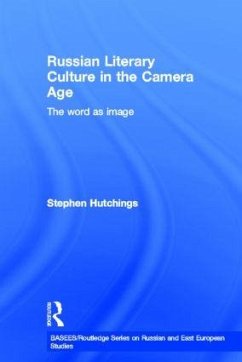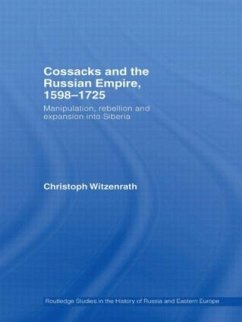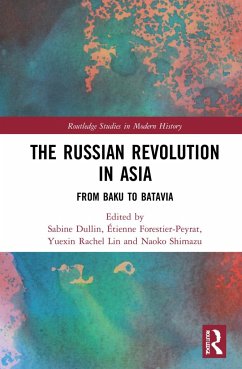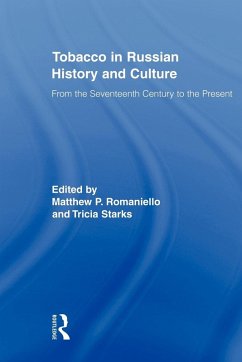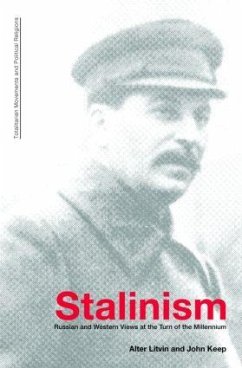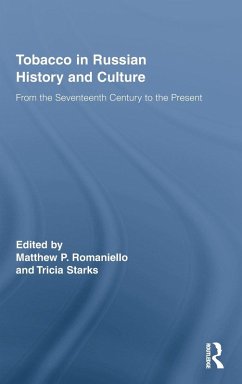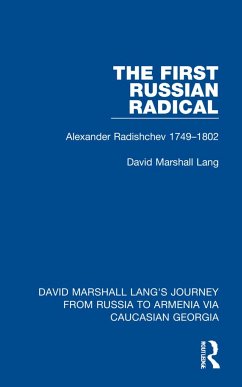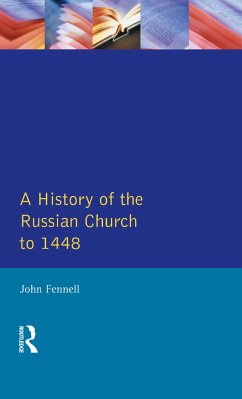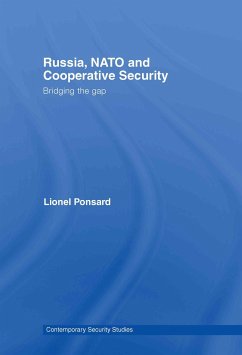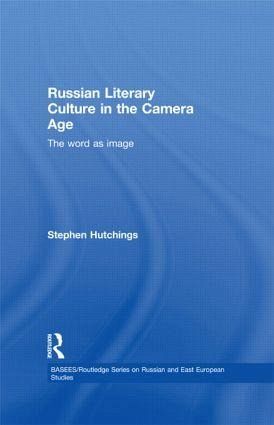
Russian Literary Culture in the Camera Age
The Word as Image
Versandkostenfrei!
Versandfertig in 1-2 Wochen
70,99 €
inkl. MwSt.
Weitere Ausgaben:

PAYBACK Punkte
35 °P sammeln!
This book explores how one of the world's most literary-oriented societies entered the modern visual era, beginning with the advent of photography in the nineteenth century, focusing then on literature's role in helping to shape cinema as a tool of official totalitarian culture during the Soviet period, and concluding with an examination of post-Soviet Russia's encounter with global television. As well as pioneering the exploration of this important new area in Slavic Studies, the book illuminates aspects of cultural theory by investigating how the Russian case affects general notions of liter...
This book explores how one of the world's most literary-oriented societies entered the modern visual era, beginning with the advent of photography in the nineteenth century, focusing then on literature's role in helping to shape cinema as a tool of official totalitarian culture during the Soviet period, and concluding with an examination of post-Soviet Russia's encounter with global television. As well as pioneering the exploration of this important new area in Slavic Studies, the book illuminates aspects of cultural theory by investigating how the Russian case affects general notions of literature's fate within post-literate culture, the ramifications of communism's fall for media globalization, and the applicability of text/image models to problems of intercultural change.





